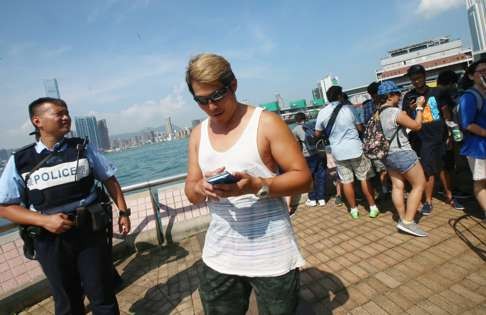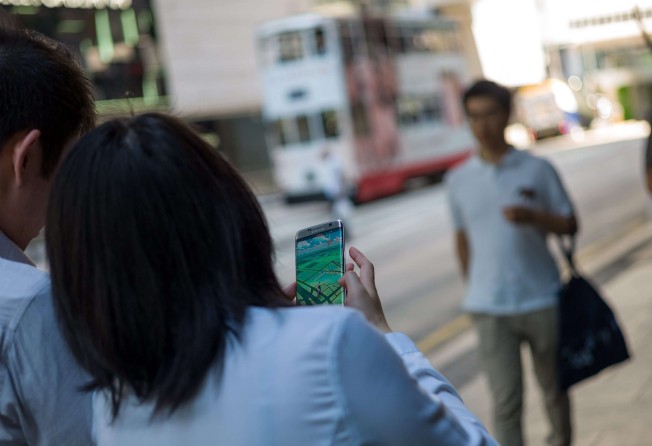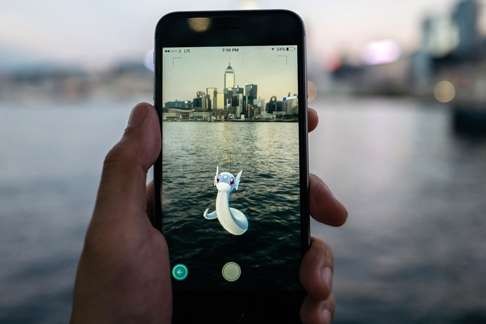
Winners and losers in the hunt for Pokémon success
Google Maps, widely utilised by players, seen as big beneficiary, but Twitter and YouTube usage plunge more than 10pc in weeks after blockbuster’s release

Pokémon Go characters are everywhere, giving players of the augmented reality game the satisfaction of constant small victories.
But it might prove trickier to hunt down the corporate creatures that are raking in the most cash flows from the game’s smash success.
Nintendo, with its 32 per cent stake in The Pokémon Company, is the most obvious winner, but its shares have soared and some analysts believe they are now overvalued.
Morgan Stanley, for example, has an 18,000-yen (US$176.70) price target on Nintendo shares, compared to Friday’s closing price of 21,875 yen.
Besides its direct equity exposure, Nintendo will also soon begin selling related Pokémon hardware, and stands to benefit in other ways.
Indeed, some believe that Nintendo is downplaying the potential total benefits from the Pokémon craze. Why would Nintendo do this? Perhaps to engineer a future upside surprise in earnings.
“They want to beat [estimates] for once,” said Travis Lundy, an independent insight provider, in a trading view published by research marketplace SmartKarma.
Lundy added he is bullish on the game but expects on-going volatility in Nintendo’s share price.
Meanwhile, investors are also shaking down the listed universe for other winners and losers of the Pokémon craze. Expected beneficiaries include DeNA, Nintendo’s mobile-game partner, and Apple, which offers the Pokémon app and related services for download.
And then there’s Google’s parent, Alphabet, which benefits on many levels, including through Google Maps, a service that is widely utilised as players of the game search for and capture Pokémon characters.

So if and when the game is introduced across the country, Nintendo would likely need a Chinese partner to help with location and other related services.
In a report published last week, Citi Research analyst Alicia Yap identified the most likely partner candidates.
Baidu, Alibaba and Tencent are the three major Chinese internet companies with strong mapping data. However, given that “localisation work for the China market is likely to be very challenging and sophisticated”, the developers of Pokémon Go might seek out a partner with strong gaming research and development experience, and a deep understanding of he gamers’ community in China.
Yap estimates that Tencent’s odds of becoming Pokémon Go’s mainland partner are highest, at 50 per cent. This is because Tencent has it all: a mapping service, experience in gaming research development, as well as social network platforms including Weixin and QQ.
She assigns a 30 per cent probability that NetEase, with its strong in-house gaming development background and large email base, would win the Pokémon prize.
However, if either Baidu or Alibaba’s AutoNavi mapping group took the job, then they would be likely to do this in conjunction with a second Chinese partner that specialized in gaming.
Yap gives a 20 per cent probability to this two-partner scenario, and thinks the gaming partner would likely be NetEase.
So who are the losers of the Pokémon phenomenon?
Twitter and YouTube usage both plunged more than 10 per cent in the weeks after Pokémon’s release, according to estimates by Citibank. Facebook, Instagram and the Google app also took usage hits, though not as severe.

Funnily enough, some of these potential losers are also potential partners: for example, both Tencent and NetEase’s games and other time-consuming online apps could lose users as the country’s wired population tunes into the Pokémon obsession.
These complications make it difficult to speculate on which, if any, Chinese companies will benefit the most from Pokémon Go; and of course it is not entirely sure the game will ever officially reach the country at all.
China is not the only big market still waiting its turn to join the hunt. South Korean officials are still vetting the game, amid security concerns. Some reports say India will get the game very shortly, leading one Islamic cleric in the country to issue a “fatwa,” or religious prohibition against playing, on concerns that Pokémon enthusiasts will trample holy shrines.
Cathy Holcombe is a Hong Kong-based financial reporter